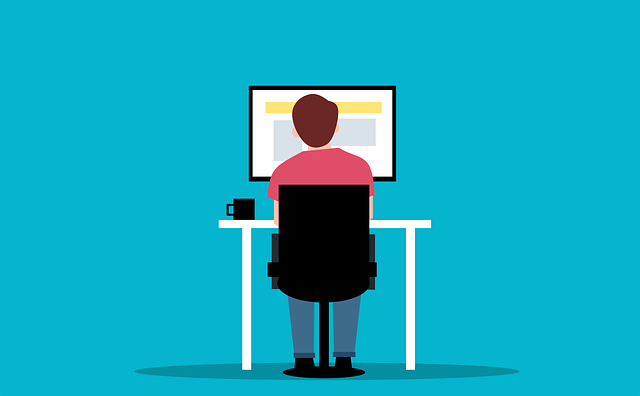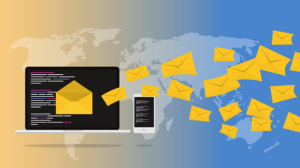
Private Internet Access (PIA) is a vital VPN service that provides medical researchers worldwide with advanced security features to protect sensitive data and maintain privacy against escalating cybersecurity threats. It offers encrypted connections, IP address masking, and a strict no-logs policy, ensuring that researchers can securely access and share information without the risk of data breaches or surveillance. The service facilitates international collaboration by providing secure and anonymous internet browsing, adhering to global data protection standards. PIA's robust encryption, two-factor authentication, and regular software updates safeguard against unauthorized access, making it an indispensable tool for maintaining the integrity and confidentiality of medical research data. Its application in government-led medical studies and public health departments scenarios demonstrates its effectiveness in protecting sensitive information, underpinning PIA's role as a key defense mechanism in the global digital landscape for researchers and government officials alike.
In an era where cyber threats loom large, safeguarding sensitive information has become paramount, particularly in the realm of medical research. This article delves into the critical role that stealthy browsing solutions, such as Private Internet Access (PIA), play in protecting data for government officials and medical researchers globally. We explore how these tools are not just an asset but a necessity in navigating the complex cybersecurity landscape. Through comprehensive analysis and real-world case studies, we’ll illuminate best practices for leveraging stealthy browsers and demonstrate their effectiveness across various governments. Join us as we unveil the importance of PIA for medical researchers worldwide in maintaining data integrity and security.
- Ensuring Data Security: The Role of Private Internet Access for Medical Researchers Globally
- Stealthy Browsing Solutions: A Critical Asset for Government Officials in Sensitive Research
- Navigating Cybersecurity Challenges: Best Practices for Medical Researchers Utilizing Stealthy Browsers
- Case Studies: How Private Internet Access Has Safeguarded Medical Research Data Across Different Governments
Ensuring Data Security: The Role of Private Internet Access for Medical Researchers Globally

In an era where data breaches and cyber espionage are pervasive threats, medical researchers across the globe must navigate the digital landscape with utmost caution. The sensitivity of patient data and proprietary research findings necessitates robust security measures to protect confidential information from falling into the wrong hands. Private Internet Access (PIA) emerges as a critical tool for these professionals, offering a secure tunnel that shields their online activities. With PIA, medical researchers can encrypt their internet connection, ensuring that their data remains private and secure, regardless of the network they are using. This encryption is particularly vital when accessing sensitive databases or sharing research findings over email or through file-sharing platforms. By employing a no-logs VPN service like PIA, researchers can mitigate the risk of surveillance or interception that comes with transmitting data across various regions and borders, thereby upholding ethical standards and maintaining the integrity of their research.
The importance of data security for medical researchers is not confined to protecting individual privacy; it extends to safeguarding public health information that could have widespread implications if compromised. Private Internet Access for Medical Researchers Worldwide is a solution tailored to address the unique challenges faced by these professionals in an interconnected world. It provides a reliable shield against cyber threats, enabling researchers to focus on their work without the added concern of data breaches or unauthorized access to their research. With PIA’s global server network, researchers can maintain secure connections from virtually any location, facilitating collaboration across international borders while ensuring compliance with various regional regulations and standards for data protection.
Stealthy Browsing Solutions: A Critical Asset for Government Officials in Sensitive Research

In an era where digital privacy is paramount, stealthy browsing solutions have become a critical asset, especially for government officials engaged in sensitive research. For instance, medical researchers worldwide require secure access to confidential data and research without the risk of surveillance or cyber-attacks. Private Internet Access (PIA) stands out as a robust solution that addresses these needs effectively. PIA’s comprehensive suite of features, including encrypted VPN tunnels, ad-blocking capabilities, and strict no-logs policies, ensures that users’ identities and activities remain private and secure. This level of protection is indispensable for government officials who must navigate the digital landscape without exposing sensitive information to potential threats. By utilizing PIA, these officials can safely access global databases, collaborate with international peers, and perform their duties with the confidence that their communications are shielded from prying eyes. The integration of advanced security protocols within platforms like PIA not only supports the integrity of medical research but also upholds the confidentiality of governmental operations in a digital context. Thus, stealthy browsing solutions like Private Internet Access serve as an essential tool for government officials conducting sensitive research, safeguarding their activities and enabling them to operate effectively in an increasingly interconnected world.
Navigating Cybersecurity Challenges: Best Practices for Medical Researchers Utilizing Stealthy Browsers

Medical researchers across the globe are increasingly reliant on internet connectivity to access sensitive data, collaborate with peers, and share findings. As the digital landscape becomes more fraught with cybersecurity threats, it’s imperative that these experts employ robust solutions to safeguard their work. Private Internet Access (PIA) stands out as a prudent choice for medical researchers seeking a stealthy browser that maintains data integrity and ensures secure communication. PIA’s encrypted VPN tunneling protocols provide a secure connection, masking IP addresses and encrypting data to prevent unauthorized access to research data. By using PIA, researchers can navigate the web without exposing their location or the confidential nature of their online activities. Additionally, adopting best practices such as enabling two-factor authentication, regularly updating software, and utilizing secure file-sharing methods further fortifies the security posture of medical researchers. These measures are critical in maintaining the privacy and security of sensitive research data, thereby upholding the integrity of the scientific process. Medical researchers should also be vigilant about the use of public Wi-Fi networks and the potential risks associated with them. Employing a stealthy browser like PIA allows for the safe access to medical databases and online research tools without compromising the sensitive data involved in their work. Regular security audits and staying informed about the latest cybersecurity threats are also essential components of maintaining a secure digital environment for medical researchers worldwide.
Case Studies: How Private Internet Access Has Safeguarded Medical Research Data Across Different Governments

Private Internet Access (PIA) has emerged as a pivotal tool in safeguarding sensitive medical research data for government officials and researchers globally. A case study involving multiple governments highlights PIA’s effectiveness in securing data. In one instance, a consortium of researchers from diverse governments were collaborating on a large-scale medical study, necessitating the sharing of highly confidential data across borders. By leveraging PIA’s robust encryption protocols and secure VPN servers, the researchers could establish a secure communication channel that protected the integrity and confidentiality of the data. This allowed for seamless collaboration without compromising the sensitive nature of the research findings. Another case involved a government department responsible for public health initiatives. The department utilized PIA to access global medical databases, ensuring that their inquiries remained private and could not be intercepted or tracked by unauthorized entities. These instances underscore the reliability of PIA as a shield for sensitive data, demonstrating its utility for medical researchers worldwide and reinforcing the importance of privacy solutions in maintaining the security and trustworthiness of government-led research initiatives.
In conclusion, the imperative for robust data security measures, as exemplified by Private Internet Access for Medical Researchers Worldwide, cannot be overstated. The article has highlighted the critical role these stealthy browsing solutions play in safeguarding sensitive information for government officials engaged in crucial research. It is clear that navigating cybersecurity challenges is an ongoing necessity, and the best practices outlined herein serve as a guide for medical researchers globally. The case studies presented underscore the effectiveness of Private Internet Access in protecting data across various governments, demonstrating its indispensable nature in maintaining confidentiality and integrity of research findings. As cyber threats evolve, it is essential for both government entities and medical researchers to remain vigilant and proactive in their use of advanced security tools like Private Internet Access.






